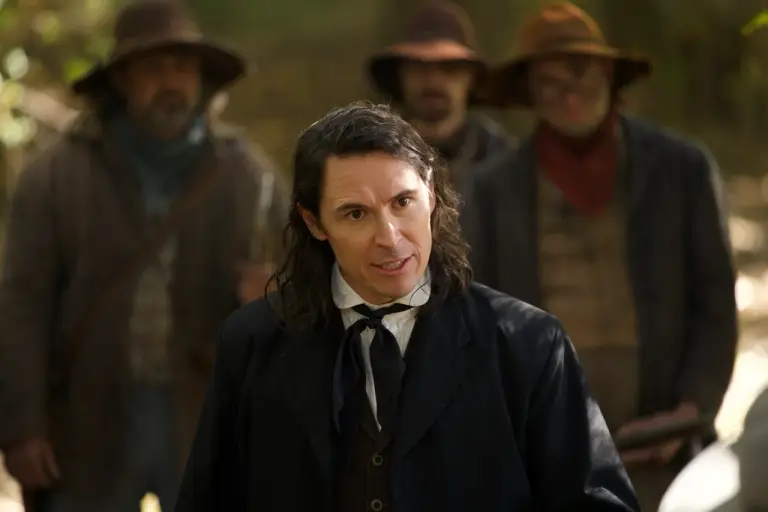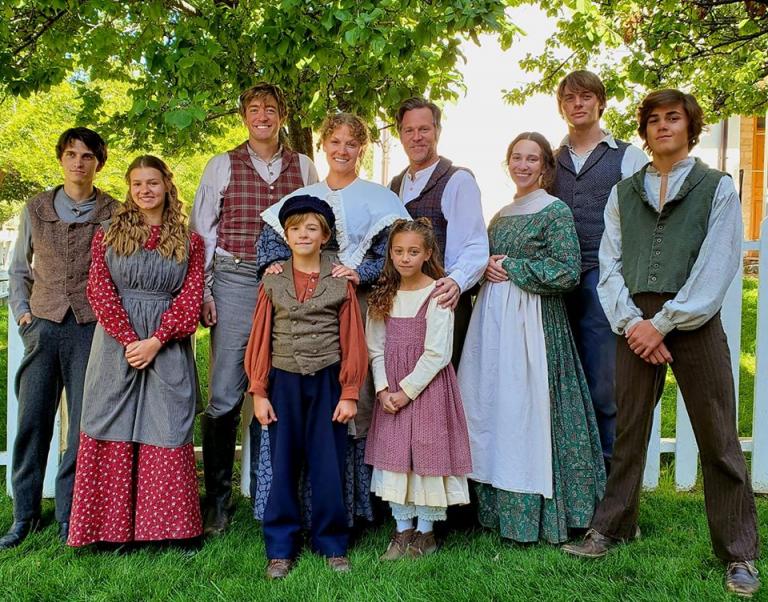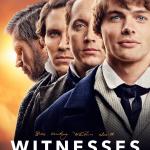
One of the events depicted in Six Days in August is the destruction, by order of the Nauvoo City Council, of the dissident Nauvoo Expositor newspaper on the evening of 10 June 1844. That act was probably among the principal inflammatory factors leading to the eventual incarceration and murder of Joseph and Hyrum Smith about two and a half weeks later.
In the immediate wake of the destruction of the Expositor, opponents of Joseph Smith and the Latter-day Saints throughout Hancock County erupted in fierce outrage. Thomas Sharp, the editor of the Warsaw Signal, published an impassioned editorial on the subject, declaring,
We have only to state, that this is sufficient! War and extermination is inevitable! Citizens ARISE, ONE and ALL!!!— Can you stand by, and suffer such INFERNAL DEVILS! to rob men of their property and rights, without avenging them? We have no time for comment, every man will make his own. Let it be made with POWDER and BALL!!!”
Moreover, critics of the Prophet ever since that time have condemned the suppression of the Expositor, pointing to it as irrefutable evidence of Joseph Smith’s dictatorial tendencies and his sheer immoral wickedness.
It’s an easy argument for them to make and a good way for them to score points against Joseph, because our sensibilities in the twentieth and twenty-first centuries are deeply offended — and quite understandably so — at the idea of suppressing newspapers. But our sensibilities were not the sensibilities of our ancestors just a few generations ago.
I’ve just finished watching an installment of Robert Boylan’s podcast that’s entitled Episode 62: “Craig Foster on the Destruction of the Nauvoo Expositor.“ It’s based upon an article that Craig wrote for the Interpreter Foundation back in 2023: Craig L. Foster, “Turning Type into Pi: The Destruction of the Nauvoo Expositor in Historical Context,” Interpreter: A Journal of Latter-day Saint Faith and Scholarship 58 (2023): 107-126:
Abstract: The destruction of the Nauvoo Expositor has been portrayed as an event that stands out as a unique act where Joseph Smith and the Nauvoo City Council suppressed free speech. However, rather than being an anomaly, the destruction of the Nauvoo Expositor was historically and socially reflective of society in a volatile period in American history during which time several presses were destroyed and even editors attacked and killed.
Foster shows via numerous examples that the suppression of newspapers and the destruction of their presses — most often extralegally but sometimes carried out by government agents — was actually far from rare in mid-nineteenth-century America. The measures taken by Mayor Joseph Smith and the Nauvoo City Council occurred in a political and social context that is very different from ours. And one of the most surprising elements of the story that Foster tells — well worth the price of admission! — is the actual attitude of Governor Thomas Ford toward the suppression of the Expositor.
I’m reminded of the famous opening line of L.P. Hartley’s 1953 novel The Go-Between: “The past is a foreign country: they do things differently there.”
Perhaps the single most fundamental legal-academic treatment of the episode is Dallin H. Oaks, “The Suppression of the Nauvoo Expositor,” Utah Law Review 9 (1965): 862–903, which was published back when President Oaks was a young law professor at the University of Chicago. Much more recently, it has been republished — and is now available online — as “Legally Suppressing the Nauvoo Expositor in 1844,” in Gordon A. Madsen, Jeffrey N. Walker, and John W. Welch, eds., Sustaining the Law: Joseph Smith’s Legal Encounters (Provo UT: BYU Studies, 2014), 427-459.
Professor Oaks’s conclusions are striking — to me, at least — because, while he doesn’t utterly damn the actions of Nauvoo’s mayor and city council in the matter (which might not surprise cynical readers who are aware of President Oaks’s subsequent academic and ecclesiastical life), he also doesn’t let them entirely off the hook:
A historian friendly to the people of Nauvoo has called the suppression of the Nauvoo Expositor “the grand Mormon mistake.” That its consequences were disastrous to the Mormon leaders and that alternative means might better have been employed cannot be doubted. Nevertheless, the common assumption of historians that the action taken by the city council to suppress the paper as a nuisance was entirely illegal is not well founded. Aside from damages for unnecessary destruction of the press, for which the Nauvoo authorities were unquestionably liable, the remaining actions of the council, including its interpretation of the constitutional guarantee of a free press, can be supported by reference to the law of their day. (459)

The 2021 Interpreter Foundation movie Witnesses has been available for viewing at no charge over the past week or so: https://vimeo.com/824199556/ecefc622ed. That window of opportunity goes until tomorrow, 10 October, when its successor film, Six Days in August, enters into theaters.
As I write, Six Days in August is scheduled for more than ninety theaters in Utah, Idaho, Wyoming, Arizona, California, Texas, Oregon,Washington, Ohio, Alaska, Florida, Hawaii, Kansas, Colorado, Nevada, New Mexico, and Canada. And more theaters are slated to open on 18 October. Please go to the official Six Days in August website to find a theater near you. If there is no theater playing the film within a reasonable distance of your location, locate the button on the website marked “Demand It in Your Area” and, well, demand it in your area! The process will only require a few seconds and, although we can’t absolutely guarantee anything — theater owners and managers have their agency, after all — we will try very seriously to get the movie to people who want to see it. If you can get friends or neighbors or ward members to request it along with you, that will make our case to local theaters all the more persuasive.
And, by the way, as yet unconfirmed rumors say that Brigham Young and his wife Mary Ann Angell Young are hoping to attend Brigham Young University’s game against the University of Arizona this coming Saturday. (After all, it’s Homecoming weekend!) If you’re there, please keep an eye out for them.













